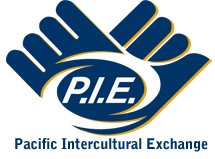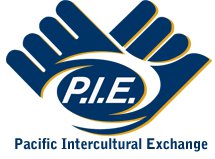
JACKSON – (AP) An organization has lost its government designation to bring foreign exchange students to the United States after facing allegations of mismanagement and lax oversight that included students being placed in homes where they were sexually abused.
 State Department spokeswoman Susan Pittman told The Associated Press that Pacific Intercultural Exchange, or PIE, was removed from the department's list of official sponsors.
State Department spokeswoman Susan Pittman told The Associated Press that Pacific Intercultural Exchange, or PIE, was removed from the department's list of official sponsors.
State Department officials haven't said exactly what problems led to PIE's removal, but documents and emails obtained by AP in July showed allegations of serious problems, including sexual abuse by host fathers. The documents also showed that the State Department had concerns about PIE's operations for years.
The San Diego-based company was part of a network of organizations that brings close to 30,000 high school students to the U.S. annually.
PIE and other sponsors charge the students' families thousands of dollars to arrange for them to live in American households and go to high school. The U.S. government also gives grants to students from some countries.
PIE was suspended from the program in July. The company challenged the suspension, but it was upheld during an administrative appeals process. The suspension affected more than 455 students from 18 countries for this school year.
The State Department also decided at that time to deny PIE's sponsor re-designation, which comes up for renewal every two years.
The company faced a deadline earlier this month to appeal the decision, but decided not to challenge it, meaning the company was removed from the sponsor list, Pittman said.
“The department has had long-standing concerns that PIE operated its exchange program in a manner that put at risk the health, safety and welfare of student participants,'' Pittman said. “The department remains vigilant in its oversight of exchange visitor program sponsors to ensure that the participants' experiences are safe and rewarding.''
Two of the most serious cases of problems involved host fathers convicted of sexually abusing exchange students, including one in which PIE was accused of failing to do an adequate background check.

In one of the sexual abuse cases, PIE host father Craig Steven Ley of Beaverton, Oregon, pleaded guilty in 2010 to sexually abusing a German boy. PIE didn't do an adequate background check which would have disclosed Ley had a felony record for using another exchange student in a bogus insurance claim, according to a lawsuit filed on behalf of the student.
PIE President John Doty testified in September as part of the lawsuit that his company had known since 2006 that Ley was a convicted felon, though he denied personal knowledge of Ley's criminal record and said his company didn't know the prior crime involved an exchange student.
The company also tried to falsify records in 2010 to conceal the fact that it brought a 17-year-old girl from Kazakhstan to Maryland without having her registered for school, according to documents reviewed by AP. The students are supposed to be registered for school before coming to the U.S. The girl ended up going home disappointed and distraught.
Officials in Louisiana were so alarmed by the living conditions of PIE students that in 2010 the Vermillion Parish School Board banned the company from placing students in the district.
Doty, the PIE president, told his staff in a 2006 email that the company narrowly dodged sanctions for canceling “a number'' of students who signed up to participate in 2005. The email also said Doty went to Washington D.C., in 2006 to meet with State Department officials because he was again faced with canceling participants, this time 113 Korean students.
PIE's website says it has brought more than 25,000 students to the U.S. since the 1970s.
The company generated nearly $3.5 million from October 2009 to September 2010, according to a 2011 IRS filing required of nonprofit organizations. About $1.26 million was from government contributions or grants, but the majority of the company's money, about $2.26 million, came from its foreign program fees, according to the document. The company's website says it has facilitated exchanges for more than 25,000 high school students since the 1970s.
